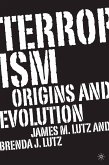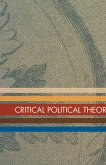Dieser Download kann aus rechtlichen Gründen nur mit Rechnungsadresse in A, B, BG, CY, CZ, D, DK, EW, E, FIN, F, GR, HR, H, IRL, I, LT, L, LR, M, NL, PL, P, R, S, SLO, SK ausgeliefert werden.
"Seizing upon the incompatibility of Nietzsche s affirmation of life, his identification of life with woman, and his focusing on the emasculation of culture as the central feature of modernity s decadence, Schotten draws attention to both contradiction and gender as operating at the center of Nietzsche s thinking. Noting that Nietzsche could not ultimately capitalize on his own revolutionary potential, this text makes a persuasive case - one that will excite some and enrage others - that there remain important resources in Nietzsche for a post-Marxist, post-structuralist, and post-heterosexist revolutionary agenda. And, insofar as it demonstrates, perhaps more successfully than any other work to date, that gender deserves attention as a central thematic in Nietzsche's critique of modernity, it should take a place among the important contributions to the secondary literature." - Alan D. Schrift, F. Wendell Miller Professor of Philosophy, Grinnell College; andeditor, The Complete Works of Friedrich Nietzsche









